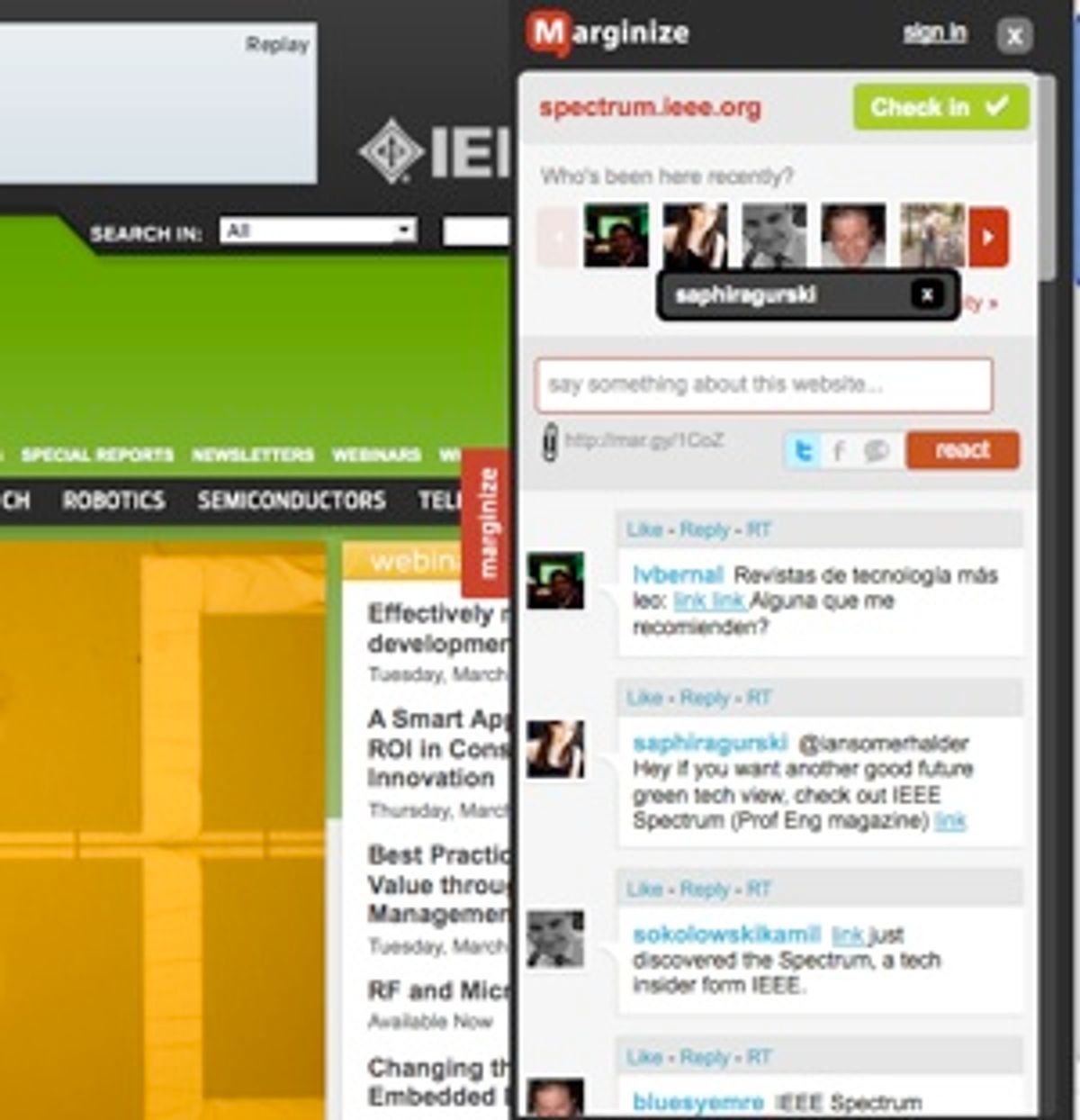Listening to the 60-some startup company executives present their brand-new technologies at Demo Spring 2011, it became clear that a new data stream is kicking off a new wave of engineering creativity. This time, the data is not coming from a satellite in the sky—it is coming from servers in the cloud; specifically, Facebook, Twitter, and Linked In, along with contact lists from Gmail and other online services. And it won’t be long, it seems, before assume all the computing gizmos we use know who we like to communicate with.
Over the past few years, while we’ve been using these online services to track friends and colleagues, they’ve been tracking us—who we know, who we communicate with the most, who and what we are most interested in. And that data can be used all sorts of ways.
Take search. Now social search is not a new idea; I’ve watched companies for years pitch websites that offered social search—you register, do your search on that website, and then you can send the results of your search to friends and colleagues, so if they’re interested in the same topic they can save time by piggybacking on your efforts. Not a bad idea, but also not surprising that none of these efforts really took off; the going to a special site, the registering, the identifying folks who might be interested, the sending the search results out—way too much trouble.
But suddenly, with the wide availability of social data, the barriers to social search essentially disappear, and, this time, it might just catch on.
That’s what several companies introducing at Demo Spring 2011 hope, anyway.
Marginize presented a web-browser plug in that instantly adds social data to websites—when you go to a site, you can click onto a button to see what people are saying about that site, rather than separately going to Twitter or Facebook.
Then there’s Social Shopping. Doug Mack, CEO of One Kings Lane, a home décor shopping site, pointed out that early Internet shopping sites were designed by men, who tend to want shopping experiences that are fast and efficient, but many women shop differently, using shopping as an activity to do with friends. Two companies at Demo--Zugara and FaceCake Marketing Technologies presented new tools for online shopping; both let users easily share their potential choices to Facebook and Twitter to gather feedback from their social networks.
And Social CMS. Nimble Social Relationship Manager takes social data from Facebook, Twitter, and Linked In, adds your email and calendar information, and
Photo: Marginize adds a social stream to the IEEE Spectrum web page.
Tekla S. Perry is a senior editor at IEEE Spectrum. Based in Palo Alto, Calif., she's been covering the people, companies, and technology that make Silicon Valley a special place for more than 40 years. An IEEE member, she holds a bachelor's degree in journalism from Michigan State University.






